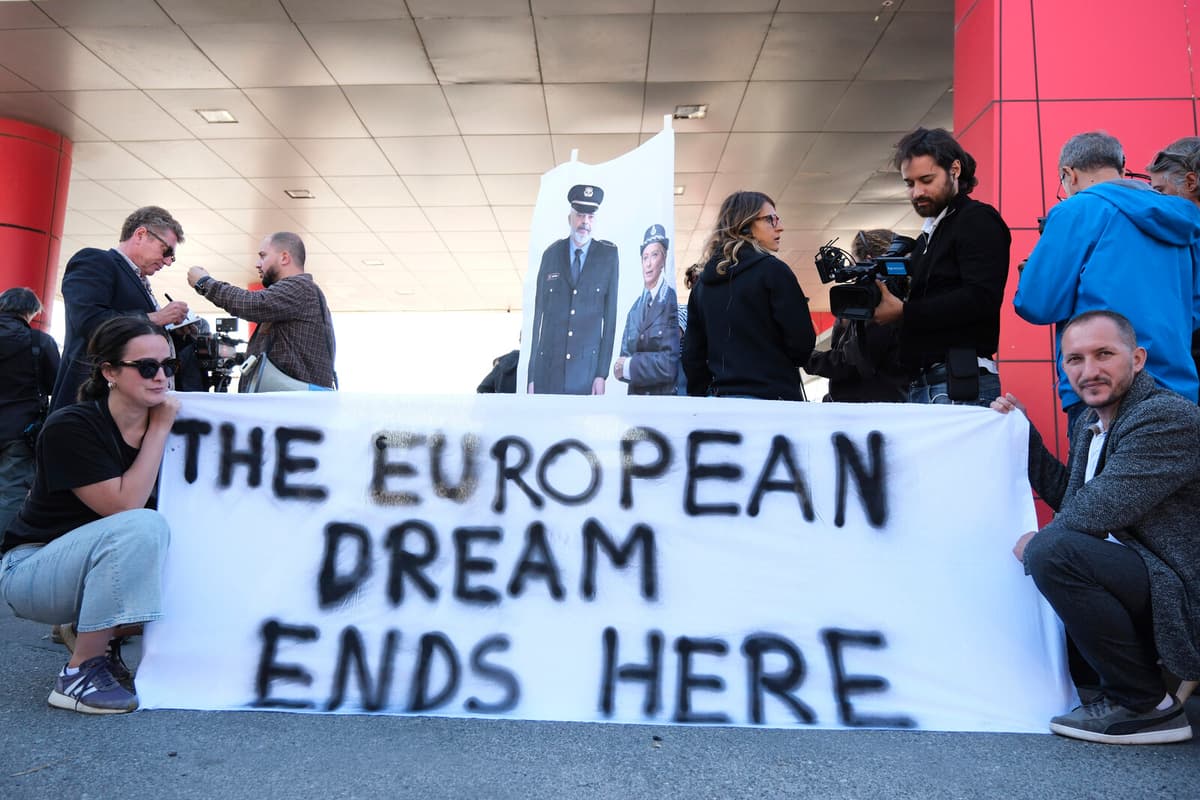At the EU summit in Brussels, EU countries discussed "innovative" measures - primarily for how to deport migrants with rejected asylum applications out of the EU.
We will soon come up with a new proposal for returns, says Commission President Ursula von der Leyen after the meeting.
The EU's return directive will now be updated, for example, to ensure that a person who has been rejected in one member state cannot travel to another and apply again.
Trying different paths
The previously rejected idea of transit centers outside the EU will also be tested again.
We must now try almost all paths that exist, says Prime Minister Ulf Kristersson (The Moderate Party).
According to him, it is unsustainable that so many who have been rejected for asylum still stay in the EU.
Kristersson assessed after the summit that there is a completely different tone in the EU now than just a few years ago when it comes to doing something about irregular migration and that so few with rejections return.
It was a broad discussion that I think will be very guiding for other ministerial councils (in the EU) in a more restrictive direction, says the Prime Minister.
Denmark has driven the issue
Even the Danish Prime Minister Mette Frederiksen noted that the tone has changed. She pointed out that she has been driving the issue of asylum centers outside the EU for several years, but without getting a hearing.
It was like shouting in an empty handball hall in Jutland, says Frederiksen.
To get more countries to cooperate with the EU on irregular migration, the EU will use trade, aid, and visa policies more than today. The EU has agreements with, among others, Tunisia and Turkey.
Italy has concluded its own agreement with Albania and has begun sending the first migrants to centers outside Tirana, where they will await asylum decisions.
German skepticism
Germany and Spain are skeptical about centers outside the EU. The German debate has largely focused on individuals who would have been deported but stayed and committed Islamist violence.
Criminals must be sent back, says Chancellor Olaf Scholz according to Politico.
Poland has a special migration problem. Russia is channeling migrants via Belarus to Poland to increase tensions between EU countries. At the EU summit, Polish Prime Minister Donald Tusk presented the situation and plans to temporarily abolish the right to seek asylum due to national security.
The EU leaders showed, according to Kristersson, great understanding for Poland's plans.
In the EU leaders' joint statement on migration from the Brussels summit, the importance of both enforced legislation and promised legislation is emphasized.
They call for increased cooperation with the countries where refugees come from or pass through and urge the EU Commission to swiftly come up with the new legislative proposal to speed up returns, as promised by President Ursula von der Leyen.
Russia and Belarus are also specifically condemned for their way of pushing migrants and asylum seekers towards the EU. Poland's response to this receives support from the rest of the EU: "Exceptional situations require suitable measures", the EU leaders write, among other things.
Source: European Council.






